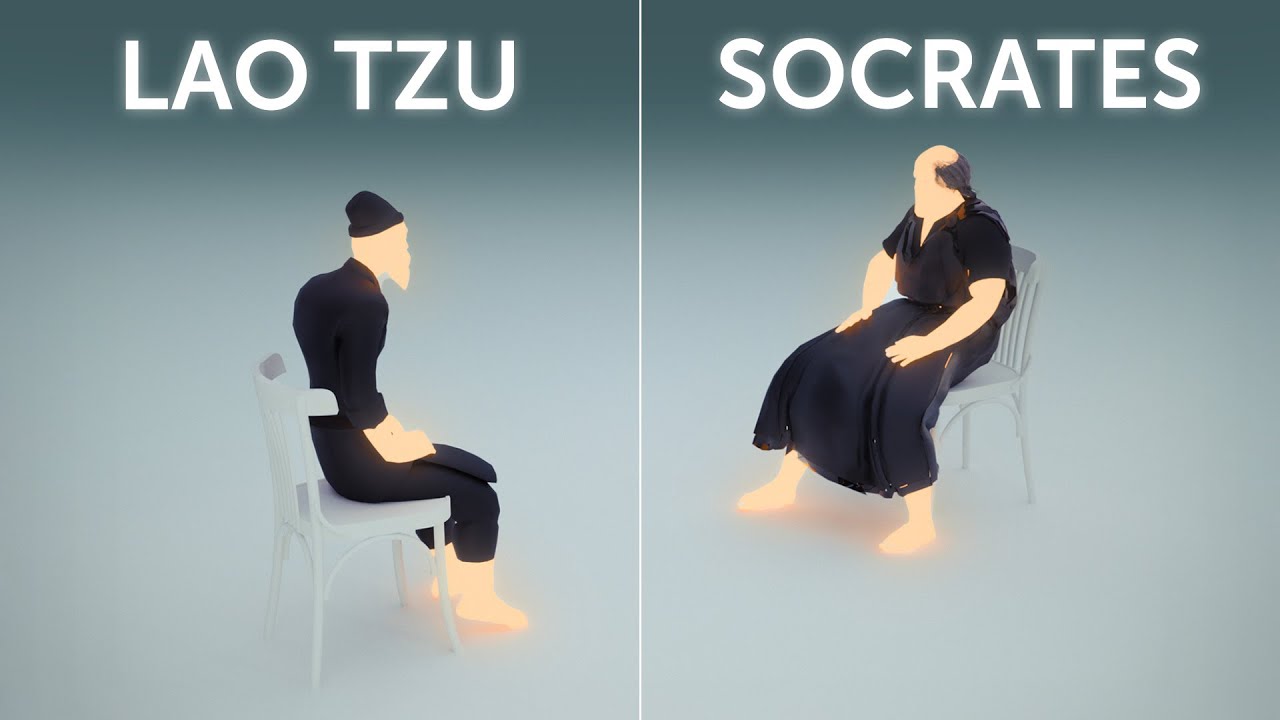The debate between Socrates and Lao Tzu contrasts Socrates’ emphasis on reason, self-examination, and questioning as the path to wisdom with Lao Tzu’s advocacy for living simply and harmoniously with the natural flow of the Tao. Despite their differing approaches, both philosophers acknowledge the existence of a singular ultimate truth and the limitations of language in fully conveying wisdom, encouraging a balance between intellectual inquiry and intuitive harmony.
The debate between Socrates and Lao Tzu centers on the most important aspect of being human, with Socrates emphasizing the unique human capacity for self-examination and questioning, while Lao Tzu advocates for returning to a natural, simple way of living in harmony with the Tao. Socrates argues that self-reflection is what separates humans from animals and that questioning one’s beliefs is essential to avoid living like beasts. Lao Tzu counters that humans have lost their natural goodness by overcomplicating life with artificial desires and rigid rules, and that true wisdom comes from flowing naturally with life rather than endless analysis.
They explore whether thinking and questioning are blessings or curses. Socrates sees questioning as a vital tool to cut through societal falsehoods and discover what truly matters, while Lao Tzu warns that excessive analysis can trap the mind and distance people from their innate wisdom. Lao Tzu suggests that natural intelligence arises from stillness and acting without forcing, whereas Socrates insists that without examination, people cannot distinguish genuine wisdom from harmful customs. This tension highlights their differing views on the role of reason versus nature in guiding human behavior.
The discussion turns to practical matters like ruling a city and resolving conflicts. Lao Tzu envisions a wise ruler who governs gently, removing unnecessary complications and allowing people to follow their natural goodness, while Socrates stresses the need for rigorous questioning to understand justice and curb selfishness. They debate how to help others become wise, with Socrates advocating for questioning to expose contradictions in beliefs, and Lao Tzu promoting simplicity and leading by example to let wisdom arise naturally. Both acknowledge the challenges in transforming others and the limits of their methods.
When addressing relationships and love, Socrates insists on relentless questioning to uncover truth and avoid living separate lives under the guise of companionship. Lao Tzu counters that genuine peace and wisdom come from living naturally and that forcing examination on others often breeds resistance. They agree that true understanding changes behavior but differ on how it is best achieved—through deep inquiry or through returning to simplicity and stillness. This exchange underscores their fundamental philosophical divide between intellectual inquiry and intuitive harmony.
In conclusion, both philosophers affirm the existence of one ultimate truth but disagree on how to access it. Socrates champions examination and reason as the path to wisdom, while Lao Tzu warns that language and analysis create separation from the Tao, which must be experienced directly beyond words. They recognize the paradox that teaching and explaining inevitably fall short of conveying true wisdom. The debate ends with mutual respect and an acknowledgment that both paths offer valuable insights into the human condition, inviting viewers to reflect on the balance between reason and nature in their own lives.
